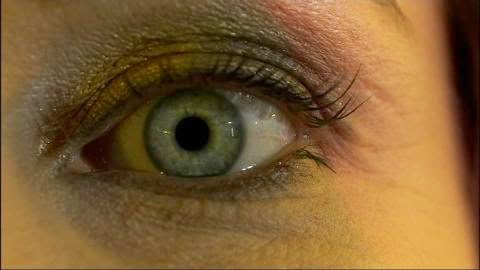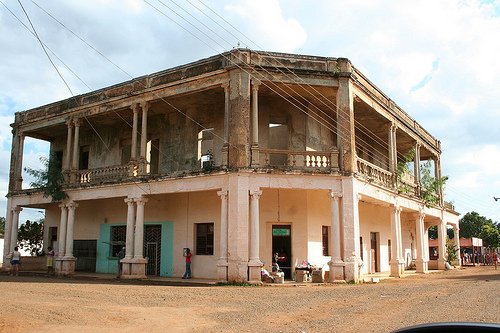Se acuerdan de la espía castrista Ana Belén Montes? Este fin de semana el Washington Post ha presentado una historia de la espía castrista encarcelada en Estados Unidos. El título dice que Ana Montes hizo mucho DAÑO al espiar para Cuba. El artículo completo se encuentra online Y LAS TRADUCCIONES COMPLETAS ESTÁN DISPONIBLES.
This weekend The Washington Post Magazine has a feature story on imprisoned Cuban spy, former Defense Department Analyst, Ana Belen Montes.
The title is, "Ana Montes did much harm spying for Cuba. Chances are, you haven’t heard of her."
The whole article is already on-line here.
Below are some excerpts:
Montes spied for 17 years, patiently, methodically. She passed along so many secrets about her colleagues — and the advanced eavesdropping platforms that American spooks had covertly installed in Cuba — that intelligence experts consider her among the most harmful spies in recent memory [...]
Sources close to the case think that a friend at [Johns Hopkins University's] SAIS served as a facilitator for the Cubans, helping to identify potential spies. Cuba considers recruiting at American universities a “top priority,” according to former Cuban intelligence agent Jose Cohen, who wrote in an academic paper that the Cuban intelligence service identifies politically driven students at leading U.S. colleges who will “occupy positions of importance in the private sector and in the government.”
Montes must have seemed a godsend. She was a leftist with a soft spot for bullied nations. She was bilingual and had dazzled her DOJ supervisors with her ambition and smarts. But most important, she had top-secret security clearance and was on the inside. “I hadn’t thought about actually doing anything until I was propositioned,” Montes would later admit to investigators. The Cubans, she revealed, “tried to appeal to my conviction that what I was doing was right.”
CIA analysts interpret the recruitment a bit more darkly. Montes was manipulated into believing that Cuba desperately needed her help, “empowering her and stroking her narcissism,” the CIA wrote. The Cubans started slowly, asking for translations and bits of harmless intel that might assist the Sandinistas, her pet cause. “Her handlers, with her unwitting assistance, assessed her vulnerabilities and exploited her psychological needs, ideology, and personality pathology to recruit her and keep her motivated to work for Havana,” the CIA concluded.
Montes secretly visited Cuba in 1985 and then, as instructed, began applying for government positions that would grant her greater access to classified information. She accepted a job at the Defense Intelligence Agency, the Pentagon’s major producer of foreign military intelligence [...]
Her tradecraft was classic. In Havana, agents with the Cuban intelligence service taught Montes how to slip packages to agents innocuously, how to communicate safely in code and how to disappear if needed. They even taught Montes how to fake her way through a polygraph test. She later told investigators it involves the strategic tensing of the sphincter muscles. It’s unknown if the ploy worked, but Montes did pass a DIA-administered polygraph in 1994, after a decade of spying.
Montes got most of her orders the same way spies have since the Cold War: through numeric messages transmitted anonymously over shortwave radio. She would tune a Sony radio to AM frequency 7887 kHz, then wait for the “numbers station” broadcast to begin. A female voice would cut through the otherworldly static, declaring, “Atencion! Atencion!” then spew out 150 numbers into the night. “Tres-cero-uno-cero-siete, dos-cuatro-seis-dos-cuatro,” the voice would drone. Montes would key the digits into her computer, and a Cuban-installed decryption program would convert the numbers into Spanish-language text.
Montes also took the unusual risk of meeting the Cubans face-to-face. Every few weeks, she would dine with her handlers in D.C. area Chinese restaurants, where Montes would slide a fresh batch of encrypted diskettes past tiny dishes of Chinese delicacies. The clandestine handoffs also took place during Montes’s vacations, on sunny Caribbean islands.
Montes even traveled to Cuba four times for sessions with Cuba’s top intelligence officers. Twice, she used a phony Cuban passport and disguised herself in a wig, hop-scotching first to Europe to cover her tracks. Two other times she got Pentagon approval to visit Cuba on U.S. fact-finding missions. She would meet at the U.S. Interests Section in Havana during the day but slip away to brief her Cuban superiors [...]
Inside the DIA, the star analyst remained above suspicion. Montes had succeeded beyond the Cubans’ wildest dreams. She was now briefing the Joint Chiefs of Staff, the National Security Council and even the president of Nicaragua about Cuban military capabilities. She helped draft a controversial Pentagon report stating that Cuba had a “limited capacity” to harm the United States and could pose a danger to U.S. citizens only “under some circumstances.” And she was about to earn yet another promotion, this time a prestigious fellowship with the National Intelligence Council. An advisory body to the director of central intelligence, the NIC was then at CIA headquarters in Langley. Montes was about to gain access to even more treasured information [...]
U.S. military and intelligence agencies spent years assessing the fallout from Montes’s crimes. At a congressional hearing last year, the woman in charge of the damage assessment testified that Montes was “one of the most damaging spies in U.S. history.” Former National Counterintelligence Executive Michelle Van Cleave told Congress that Montes “compromised all Cuban-focused collection programs” used to eavesdrop on high-ranking Cubans, and it “is also likely that the information she passed contributed to the death and injury of American and pro-American forces in Latin America.”
This weekend The Washington Post Magazine has a feature story on imprisoned Cuban spy, former Defense Department Analyst, Ana Belen Montes.
The title is, "Ana Montes did much harm spying for Cuba. Chances are, you haven’t heard of her."
The whole article is already on-line here.
Below are some excerpts:
Montes spied for 17 years, patiently, methodically. She passed along so many secrets about her colleagues — and the advanced eavesdropping platforms that American spooks had covertly installed in Cuba — that intelligence experts consider her among the most harmful spies in recent memory [...]
Sources close to the case think that a friend at [Johns Hopkins University's] SAIS served as a facilitator for the Cubans, helping to identify potential spies. Cuba considers recruiting at American universities a “top priority,” according to former Cuban intelligence agent Jose Cohen, who wrote in an academic paper that the Cuban intelligence service identifies politically driven students at leading U.S. colleges who will “occupy positions of importance in the private sector and in the government.”
Montes must have seemed a godsend. She was a leftist with a soft spot for bullied nations. She was bilingual and had dazzled her DOJ supervisors with her ambition and smarts. But most important, she had top-secret security clearance and was on the inside. “I hadn’t thought about actually doing anything until I was propositioned,” Montes would later admit to investigators. The Cubans, she revealed, “tried to appeal to my conviction that what I was doing was right.”
CIA analysts interpret the recruitment a bit more darkly. Montes was manipulated into believing that Cuba desperately needed her help, “empowering her and stroking her narcissism,” the CIA wrote. The Cubans started slowly, asking for translations and bits of harmless intel that might assist the Sandinistas, her pet cause. “Her handlers, with her unwitting assistance, assessed her vulnerabilities and exploited her psychological needs, ideology, and personality pathology to recruit her and keep her motivated to work for Havana,” the CIA concluded.
Montes secretly visited Cuba in 1985 and then, as instructed, began applying for government positions that would grant her greater access to classified information. She accepted a job at the Defense Intelligence Agency, the Pentagon’s major producer of foreign military intelligence [...]
Her tradecraft was classic. In Havana, agents with the Cuban intelligence service taught Montes how to slip packages to agents innocuously, how to communicate safely in code and how to disappear if needed. They even taught Montes how to fake her way through a polygraph test. She later told investigators it involves the strategic tensing of the sphincter muscles. It’s unknown if the ploy worked, but Montes did pass a DIA-administered polygraph in 1994, after a decade of spying.
Montes got most of her orders the same way spies have since the Cold War: through numeric messages transmitted anonymously over shortwave radio. She would tune a Sony radio to AM frequency 7887 kHz, then wait for the “numbers station” broadcast to begin. A female voice would cut through the otherworldly static, declaring, “Atencion! Atencion!” then spew out 150 numbers into the night. “Tres-cero-uno-cero-siete, dos-cuatro-seis-dos-cuatro,” the voice would drone. Montes would key the digits into her computer, and a Cuban-installed decryption program would convert the numbers into Spanish-language text.
Montes also took the unusual risk of meeting the Cubans face-to-face. Every few weeks, she would dine with her handlers in D.C. area Chinese restaurants, where Montes would slide a fresh batch of encrypted diskettes past tiny dishes of Chinese delicacies. The clandestine handoffs also took place during Montes’s vacations, on sunny Caribbean islands.
Montes even traveled to Cuba four times for sessions with Cuba’s top intelligence officers. Twice, she used a phony Cuban passport and disguised herself in a wig, hop-scotching first to Europe to cover her tracks. Two other times she got Pentagon approval to visit Cuba on U.S. fact-finding missions. She would meet at the U.S. Interests Section in Havana during the day but slip away to brief her Cuban superiors [...]
Inside the DIA, the star analyst remained above suspicion. Montes had succeeded beyond the Cubans’ wildest dreams. She was now briefing the Joint Chiefs of Staff, the National Security Council and even the president of Nicaragua about Cuban military capabilities. She helped draft a controversial Pentagon report stating that Cuba had a “limited capacity” to harm the United States and could pose a danger to U.S. citizens only “under some circumstances.” And she was about to earn yet another promotion, this time a prestigious fellowship with the National Intelligence Council. An advisory body to the director of central intelligence, the NIC was then at CIA headquarters in Langley. Montes was about to gain access to even more treasured information [...]
U.S. military and intelligence agencies spent years assessing the fallout from Montes’s crimes. At a congressional hearing last year, the woman in charge of the damage assessment testified that Montes was “one of the most damaging spies in U.S. history.” Former National Counterintelligence Executive Michelle Van Cleave told Congress that Montes “compromised all Cuban-focused collection programs” used to eavesdrop on high-ranking Cubans, and it “is also likely that the information she passed contributed to the death and injury of American and pro-American forces in Latin America.”















No hay comentarios:
Publicar un comentario